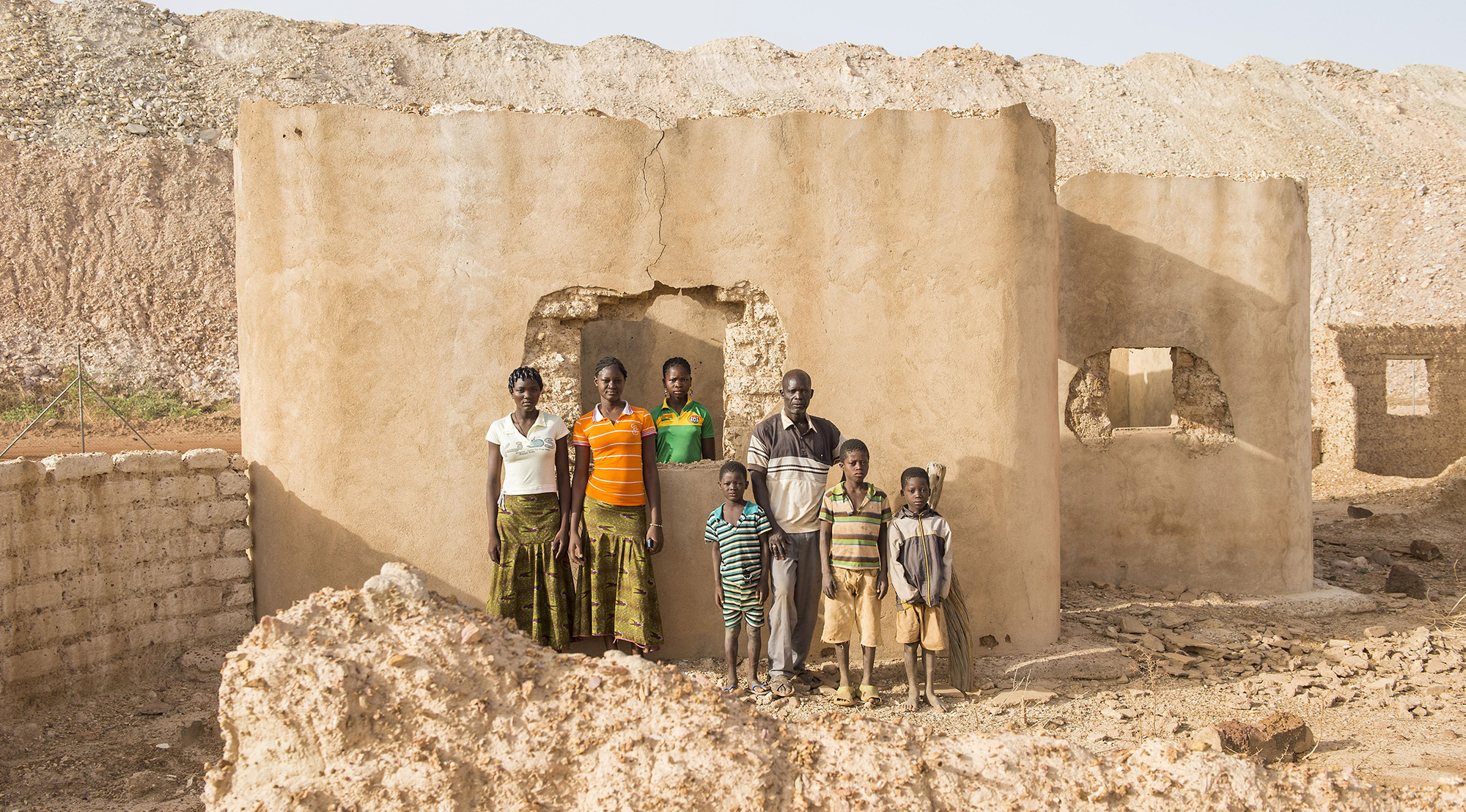With the start of the gold rush in Burkina Faso in 2012, commodity issues became a growing part of Fastenopfer’s project work, as local partner organizations, smallholders in rural areas, or women solidarity groups are all directly impacted by the effects of gold mining. This is because when gold is found on their land, farmers lose the basis of their income. Burkina Faso ranks 183rd out of 189 countries on the UN’s Human Development Index. Only just over a third of the population can read and write and more than 40 percent live off less than 1.90 US dollars a day, placing them under the threshold of extreme poverty. The gross domestic product is almost 12 billion US dollars. For a population of around 20 million, this leaves 646 US dollars per capita.
In Bissa, where the village of the same name had to make way for one of the largest industrially driven gold mines in Burkina Faso in 2013, the lives of the resettled villagers have drastically deteriorated. Only a few of the promises made by the mining companies have been kept. After the relocation, it became clear that the groundwater at their new base was laced with arsenic and was undrinkable. Women and girls therefore have to walk several kilometers a day to get drinking water. The houses provided do not resemble the traditional form of living and have led to the destruction of the social village structure, which had been intact until now. Compensation has only been paid for the fields that were being farmed at the time of resettlement. Of the 1,500 village residents, only 75 found a job in the mine.
Globalizing human rights
Over the last few years, just over 90 percent of all gold mined in Burkina Faso was exported to Switzerland and processed by the gold refineries in this country. The economy is globalized, but the responsibility for human rights is not. Nevertheless, prosperity in Switzerland is directly linked to the exploitation of raw materials in countries of the south – after all, Switzerland is a leader in commodity trading and gold refinement. With exports worth more than CHF 68 billion, precious metals were Switzerland’s second most important export in 2018 – around 95 percent of this can be attributed to gold export, as two-thirds of the world’s gold is refined here. Switzerland, the world’s largest hub and most important player, bears particular responsibility in this respect. However, the Council of States once again decided on December 18, 2019 that Swiss companies do not have to be liable for human rights violations or environmental pollution on the part of their subsidiaries abroad. Liability, however, is at the core of the Responsible Business Initiative – after all, corporations should be held accountable when human rights are violated.


